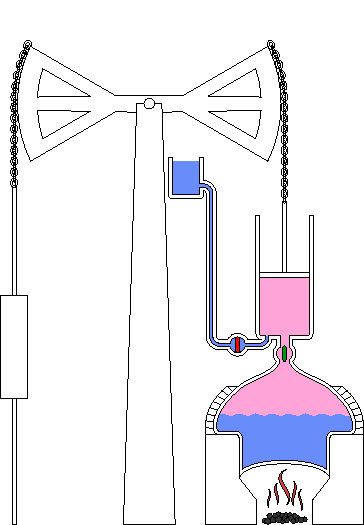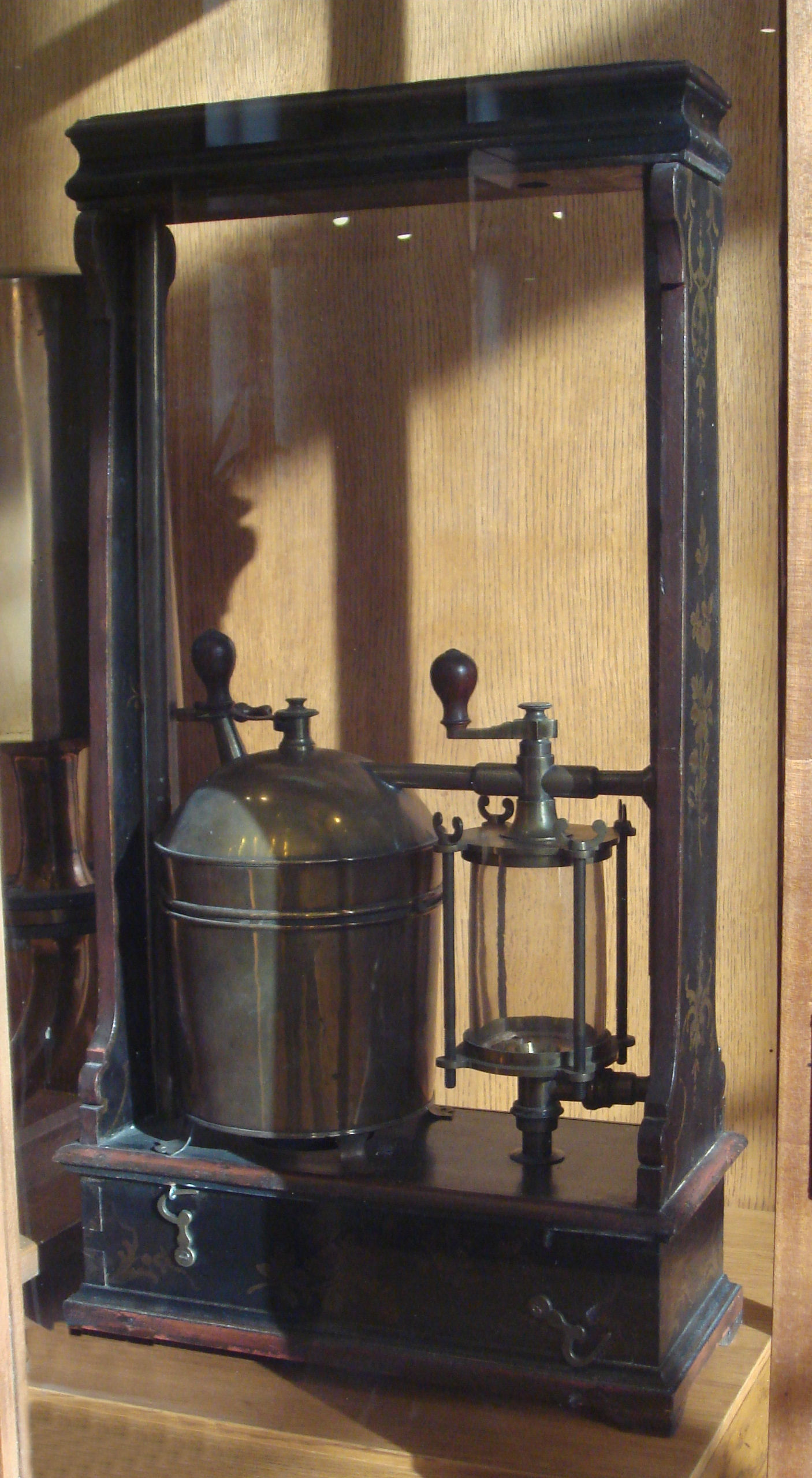|
John Calley (engineer)
John Calley (also spelt Cawley) (1663 – May 1725, The Hague), was a metalworker, plumber and glass-blower, who became famous for being Thomas Newcomen's partner. Like Newcomen, he was a member of a Dartmouth family. He helped develop the Newcomen atmospheric engine. He worked with Newcomen in introducing the engine to the Midlands, operating under the patent of Thomas Savery. The engine they created was a variation on the then current technology using a combination of steam cylinders, pistons, surface condensation and the separation of parts that were usually placed together to create this new technology. He installed an early Newcomen engine at More Hall Colliery in the grounds of Austhorpe Hall Austhorpe Hall is a house built in 1694 at Austhorpe, Leeds, West Yorkshire, England. It is a grade II* listed building. The house is of red brick with contrasting stone quoins, seven bays and three storeys, with a triangular pediment over th ... in Leeds, where he is said to hav ... [...More Info...] [...Related Items...] OR: [Wikipedia] [Google] [Baidu] |
Thomas Newcomen
Thomas Newcomen (; February 1664 – 5 August 1729) was an English inventor who created the atmospheric engine, the first practical fuel-burning engine in 1712. He was an ironmonger by trade and a Baptist lay preacher by calling. He was born in Dartmouth, in Devon, England, to a merchant family and baptised at St. Saviour's Church on 28 February 1664. In those days flooding in coal and tin mines was a major problem. Newcomen was soon engaged in trying to improve ways to pump out the water from such mines. His ironmonger's business specialised in designing, manufacturing and selling tools for the mining industry. Religious life Thomas Newcomen was a lay preacher and a teaching elder in the local Baptist church. After 1710 he became the pastor of a local group of Baptists. His father had been one of a group who brought the well-known Puritan John Flavel to Dartmouth. Later one of Newcomen's business contacts in London, Edward Wallin, was another Baptist minister who ... [...More Info...] [...Related Items...] OR: [Wikipedia] [Google] [Baidu] |
Newcomen Atmospheric Engine
The atmospheric engine was invented by Thomas Newcomen in 1712, and is often referred to as the Newcomen fire engine (see below) or simply as a Newcomen engine. The engine was operated by condensing steam drawn into the cylinder, thereby creating a partial vacuum which allowed the atmospheric pressure to push the piston into the cylinder. It was historically significant as the first practical device to harness steam to produce mechanical work. Newcomen engines were used throughout Britain and Europe, principally to pump water out of mines. Hundreds were constructed throughout the 18th century. James Watt's later engine design was an improved version of the Newcomen engine that roughly doubled fuel efficiency. Many atmospheric engines were converted to the Watt design, for a price which was based on a fraction of the fuel-savings. As a result, Watt is today better known than Newcomen in relation to the origin of the steam engine. Precursors Prior to Newcomen a number of small ... [...More Info...] [...Related Items...] OR: [Wikipedia] [Google] [Baidu] |
Thomas Savery
Thomas Savery (; c. 1650 – 15 May 1715) was an English inventor and engineer. He invented the first commercially used steam-powered device, a steam pump which is often referred to as the "Savery engine". Savery's steam pump was a revolutionary method of pumping water, which solved the problem of mine drainage and made widespread public water supply practicable. Career Thomas Savery was born at the manor house of Shilstone, near Modbury, Devon. He became a military engineer, rising to the rank of captain by 1702, and spent his free time performing experiments in mechanics. In 1696 he took out a patent for a machine for polishing glass or marble and another for "rowing of ships with greater ease and expedition than hitherto been done by any other" which involved paddle-wheels driven by a capstan and which was dismissed by the Admiralty following a negative report by the Surveyor of the Navy, Edmund Dummer. Savery also worked for the Sick and Hurt Commissioners, contractin ... [...More Info...] [...Related Items...] OR: [Wikipedia] [Google] [Baidu] |
Austhorpe Hall
Austhorpe Hall is a house built in 1694 at Austhorpe, Leeds, West Yorkshire, England. It is a grade II* listed building. The house is of red brick with contrasting stone quoins, seven bays and three storeys, with a triangular pediment over the Baroque doorway. Pevsner describes it as "A remarkably early case of acceptance of the classical idiom". Linstrum notes that it was built in 'an unusually sophisticated design'. History The house was built for John More (1655–1702). A coal mine on the estate was equipped in 1740 by John Calley, with an early Newcomen steam engine, only the fourth to be built. Calley, Newcomen's business partner, died at Austhorpe during maintenance work on the engine. The house was occupied by the Pallisers from 1762 to 1769, by John Atkinson in 1722 and by Joseph Fields in 1826 (to at least 1837). The Appleyard family lived in Austhorpe Hall for over 90 years, and moved out in 1936 to a new build in Austhorpe. It was in the possession of Chapman fam ... [...More Info...] [...Related Items...] OR: [Wikipedia] [Google] [Baidu] |
1663 Births
Events January–March * January 10 – The Royal African Company is granted a Royal Charter by Charles II of England. * January 23 – The Treaty of Ghilajharighat is signed in India between representatives of the Mughal Empire and the independent Ahom Kingdom (in what is now the Assam state), with the Mughals ending their occupation of the Ahom capital of Garhgaon, in return for payment by Ahom in silver and gold for costs of the occupation, and King Sutamla of Ahom sending one of his daughters to be part of the harem of Mughal Emperor Aurangzeb. * February 5 - A magnitude 7.3 to 7.9 earthquake hits Canada's Quebec Province. * February 8 – English pirates led by Christopher Myngs and Edward Mansvelt carry out the sack of Campeche in Mexico, looting the town during a two week occupation that ends on February 23. * February 10 – The army of the Kingdom of Siam (now Thailand) captures Chiang Mai from the Kingdom of Burma (now Myanmar), using it ... [...More Info...] [...Related Items...] OR: [Wikipedia] [Google] [Baidu] |
1725 Deaths
Seventeen or 17 may refer to: *17 (number), the natural number following 16 and preceding 18 * one of the years 17 BC, AD 17, 1917, 2017 Literature Magazines * ''Seventeen'' (American magazine), an American magazine * ''Seventeen'' (Japanese magazine), a Japanese magazine Novels * ''Seventeen'' (Tarkington novel), a 1916 novel by Booth Tarkington *''Seventeen'' (''Sebuntiin''), a 1961 novel by Kenzaburō Ōe * ''Seventeen'' (Serafin novel), a 2004 novel by Shan Serafin Stage and screen Film * ''Seventeen'' (1916 film), an American silent comedy film *''Number Seventeen'', a 1932 film directed by Alfred Hitchcock * ''Seventeen'' (1940 film), an American comedy film *''Eric Soya's '17''' (Danish: ''Sytten''), a 1965 Danish comedy film * ''Seventeen'' (1985 film), a documentary film * ''17 Again'' (film), a 2009 film whose working title was ''17'' * ''Seventeen'' (2019 film), a Spanish drama film Television * ''Seventeen'' (TV drama), a 1994 UK dramatic short starring Christi ... [...More Info...] [...Related Items...] OR: [Wikipedia] [Google] [Baidu] |
17th-century English Inventors
The 17th century lasted from January 1, 1601 ( MDCI), to December 31, 1700 ( MDCC). It falls into the early modern period of Europe and in that continent (whose impact on the world was increasing) was characterized by the Baroque cultural movement, the latter part of the Spanish Golden Age, the Dutch Golden Age, the French ''Grand Siècle'' dominated by Louis XIV, the Scientific Revolution, the world's first public company and megacorporation known as the Dutch East India Company, and according to some historians, the General Crisis. From the mid-17th century, European politics were increasingly dominated by the Kingdom of France of Louis XIV, where royal power was solidified domestically in the civil war of the Fronde. The semi-feudal territorial French nobility was weakened and subjugated to the power of an absolute monarchy through the reinvention of the Palace of Versailles from a hunting lodge to a gilded prison, in which a greatly expanded royal court could be more easily k ... [...More Info...] [...Related Items...] OR: [Wikipedia] [Google] [Baidu] |
People Of The Industrial Revolution
A person ( : people) is a being that has certain capacities or attributes such as reason, morality, consciousness or self-consciousness, and being a part of a culturally established form of social relations such as kinship, ownership of property, or legal responsibility. The defining features of personhood and, consequently, what makes a person count as a person, differ widely among cultures and contexts. In addition to the question of personhood, of what makes a being count as a person to begin with, there are further questions about personal identity and self: both about what makes any particular person that particular person instead of another, and about what makes a person at one time the same person as they were or will be at another time despite any intervening changes. The plural form "people" is often used to refer to an entire nation or ethnic group (as in "a people"), and this was the original meaning of the word; it subsequently acquired its use as a plural form of per ... [...More Info...] [...Related Items...] OR: [Wikipedia] [Google] [Baidu] |
British Steam Engine Engineers
British may refer to: Peoples, culture, and language * British people, nationals or natives of the United Kingdom, British Overseas Territories, and Crown Dependencies. ** Britishness, the British identity and common culture * British English, the English language as spoken and written in the United Kingdom or, more broadly, throughout the British Isles * Celtic Britons, an ancient ethno-linguistic group * Brittonic languages, a branch of the Insular Celtic language family (formerly called British) ** Common Brittonic, an ancient language Other uses *''Brit(ish)'', a 2018 memoir by Afua Hirsch *People or things associated with: ** Great Britain, an island ** United Kingdom, a sovereign state ** Kingdom of Great Britain (1707–1800) ** United Kingdom of Great Britain and Ireland (1801–1922) See also * Terminology of the British Isles * Alternative names for the British * English (other) * Britannic (other) * British Isles * Brit (other) * Briton (d ... [...More Info...] [...Related Items...] OR: [Wikipedia] [Google] [Baidu] |

-New_York-2_Aug_1775_REV.jpg)



_1938.jpg)